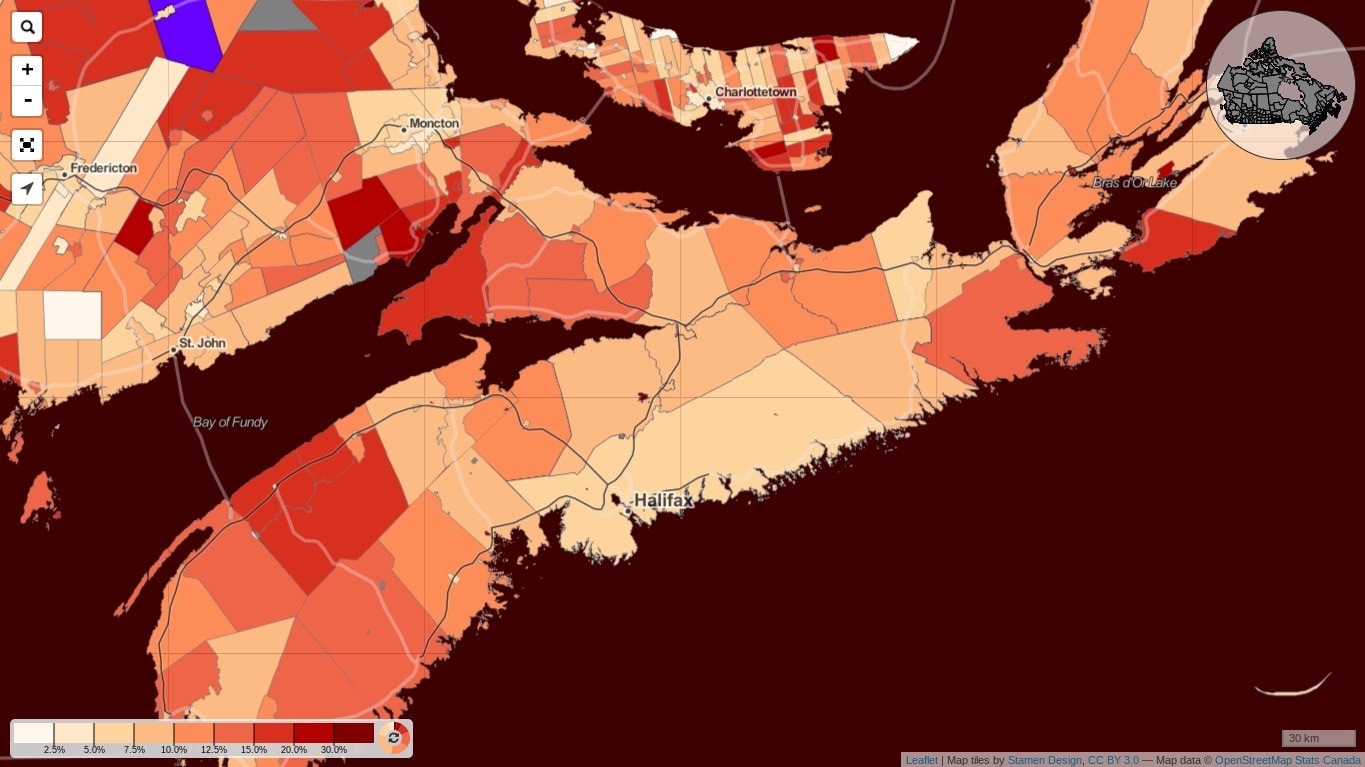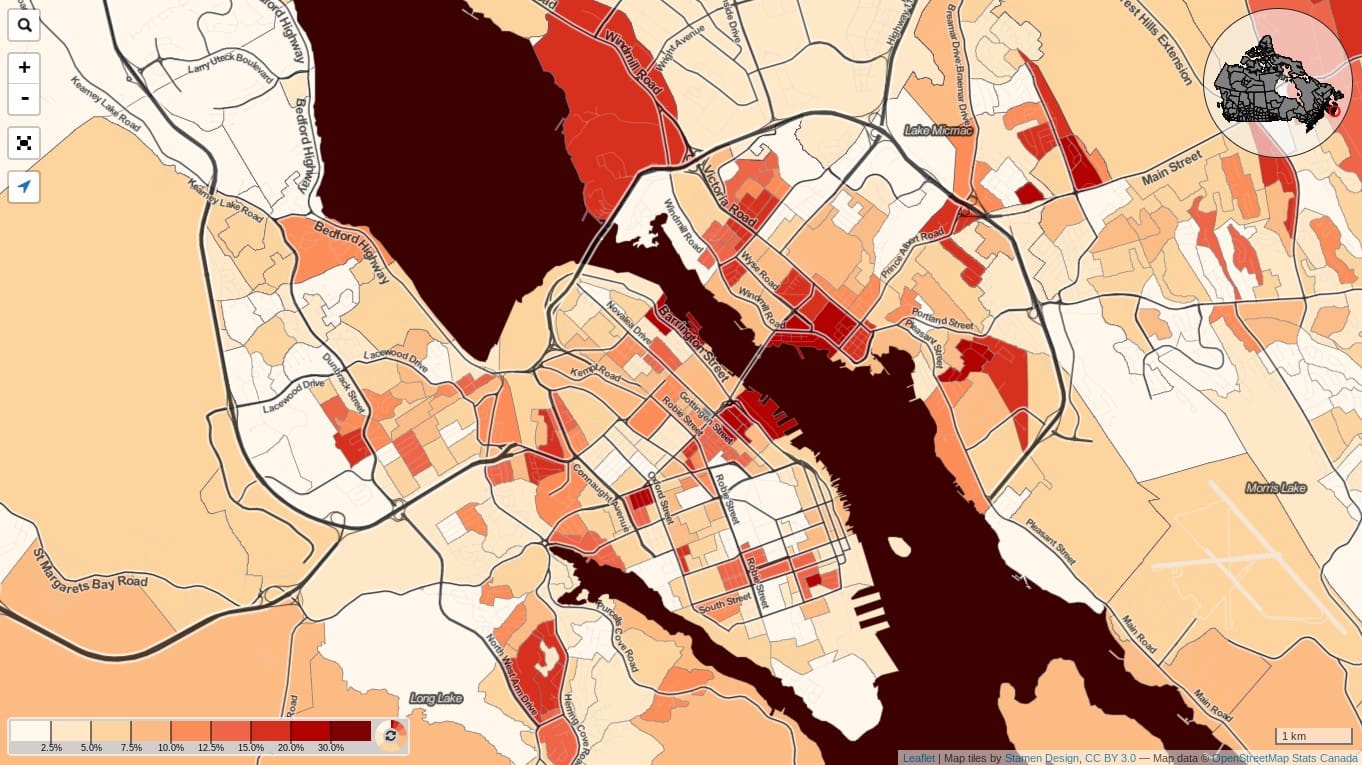KJIPUKTUK (Halifax) – 9 percent of all rental units in Nova Scotia is in need of major repairs, according to the people who live there. The numbers are derived from the recent release of housing-related data collected by Statistics Canada during the 2016 census.
Statistics Canada defines major repairs as “critical repairs to electrical, heating or water systems, or to structures such as walls, floors, ceilings; or needs major replacements such as a new roof, or new external siding.”
Occupants describe an additional 21 percent of rental units as needing minor repairs, defined as “some part of your dwelling is damaged, defective or not operating properly.” Numbers for Halifax, Kentville, New Glasgow and Truro all fit the provincial pattern, give or take a percentage point.
Province-wide about 11,000 renters occupy a home that requires major repairs. An additional 32,000 units need minor repairs. These numbers are approximate, since we’re dealing with long form census questions, meaning only 25 percent of all households were surveyed.
Using Census Mapper, this is what it looks like for Nova Scotia, broken down by county. The legend is shown at the left bottom corner of the map.
And here is the situation in urban HRM. Check out the interactive map provided by Census Mapper here.
Earlier this year Nova Scotia ACORN, an organization for people on low incomes,presented the results of a detailed province-wide on-line and paper survey on the quality of rental housing in the province.
Although lacking the rigour of Stats Canada, survey responses provide an indication of the state of repair in rental units, especially as they affect people on low incomes.
35% of the roughly 350 respondents from all across Nova Scotia said they experienced a lack of heat in the winter. 38% had problems with hot water, including 10% who could only take cold showers.
63% of tenants implied that repairs were needed the day they moved into their apartment. 67% of these same people indicated that getting the necessary repairs done was “very difficult.”
Implementing landlord licensing has been one of the priorities of ACORN Nova Scotia for a long time. Such a bylaw would require rental apartments to be registered at the municipal level and subject to an inspection. This is to protect tenants from bad landlord and substandard living conditions, much like restaurant licensing protects you from unsafe food.
Rent control is another Nova Scotia Acorn demand, both to keep rents affordable, and to ensure that landlords don’t simply download repair costs onto the tenants.
See also:
- News brief: rent poor in Nova Scotia
- Where the poor people live: Stats Canada puts Nova Scotia Poverty on the map
If you can, please support the Nova Scotia Advocate so that it can continue to cover issues such as poverty, racism, exclusion, workers’ rights and the environment in Nova Scotia. A pay wall is not an option, since it would exclude many readers who don’t have any disposable income at all. We rely entirely on one-time donations and a tiny but mighty group of dedicated monthly sustainers.





